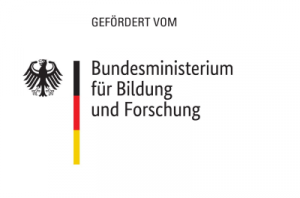
Session Chair: Lion Wedel (Weizenbaum Institute)
- Victo Silva (Radboud University), Vinicius Muraro (Lund University), Raphael Gellert (Radboud University) and Frederik Zuiderveen Borgesius (Radboud University): “The dual impact of digital public infrastructure: commodifying or empowering citizens?”
- Valentin Ihßen (Leuphana University): “Data as Symbolic Resource: Professional Identity and Relational Work in Digital Advocacy”
- Jessica Walter, Miriam Brems and Anja Bechmann (Aarhus University): “Data donation at national scale as a method for exploring digital media trends and challenges: A case study of Danish YouTube users”
- Felipe Mano (São Paulo State University): “Regulation of digital platforms work and the UN’s 2030 Agenda: how to establish compatibility between objectives and approaches?”
- David Wegmann (Aarhus University): “Introducing a New Methodology: Composition-Based Classification of Online Videos”
Session Chair: Marielle Düh (Berlin Social Science Center)
- Matteo Fabbri (IMT School for Advanced Studies) and Ludovico Boratto (University of Cagliari): “Meaningful personalization as a guiding principle for the user control of recommender systems”
- Wolfgang Kerber and Karsten Zolna (University of Marburg): “Beyond the EU Data Act: Value of IoT Data, Market Failures, and Consumer Choice in the B2C Sector”
- Lukas Seiling (Weizenbaum Institute), Jakob Ohme (Weizenbaum Institute) and Ulrike Klinger (University of Amsterdam): “It’s complicated – DSA data access and the relationship status of platforms, regulators, and researchers”
This round table takes as its starting point the recently published book “Democracy and Media in Europe: A Discursive-Material Approach” (Carpentier/Wimmer, 2025, Routledge) and the ongoing EU Horizon project medemap.eu. Jeffrey Wimmer (Augsburg University) and Nico Carpentier (Charles University) explore with Merja Mahrt (Weizenbaum Institute) and and Maren Hartmann (UdK) the various positions that can be taken on the performance of democracy as it intersects with the multiplicity of media in the 21st century. The session invites critical reflection on current challenges and opportunities for democratic media cultures in Europe, drawing on both theoretical and empirical insights.
Session Chair: Anna-Theresa Mayer
- Konstantin Lackner, Markus Uhlmann and Viktoria Horn (Universität Kassel): “Exploring Democracy-friendly News Navigation”
- Julian Maitra (Université de Fribourg (CH)) and Anas Ansar (Universität Freiburg (DE)): “Mapping Germany’s #Remigration Debate Through the Lens of Social Media: A Comparative Study of Facebook and Instagram”
- Felix Gaisbauer, Lion Wedel and Jakob Ohme (Weizenbaum Institute): “Are Individual Pathways of Engagement with Political Content on TikTok a Supply or Demand Issue?”
- Axel Bruns, Carly Lubicz-Zaorski, Tariq Choucair, Laura Vodden and Ehsan Dehghan (Queensland University of Technology): “Shifting Discursive Alliances: A Longitudinal Analysis of Australian Climate Change Discourses on Facebook through Practice Mapping”
- Marko Skoric (City University of Hong Kong): “Does the Evolution of Social Media Platforms Lead to the Rise of Exclusionary Social Capital?”
Session Chair: Kilian Bühling (Weizenbaum Institute)
- Torsten Goerke and Sabine Barthold (TU Dresden): “Democracy by Default – Hatching a Commons for Digital Deliberation”
- Juan Gomez-Cruces (Universitat Potsdam/Hasso-Plattner Institute): “The Consequences of the Digital Governance of Online Public Spaces by Populist Leaders”
- Lilach Nir (Hebrew University): “From Clicks to Agency or Apathy? Social Media Low-Effort Use and Political Efficacy in Three Democracies”
- Chris Wells (Boston University), Friedland Lewis (University of Wisconsin-Madison), Dhavan Shah (University of Wisconsin-Madison), Katherine Cramer (University of Wisconsin-Madison), Namjin Lee (College of Charleston), Stephanie Edgerly (University of Wisconsin-Madison), Leo Shan (University of Wisconsin-Madison) and Sean Pauley (University of Wisconsin-Madison): “How media consumption patterns are distributed across American social classes: Implications for political opinion and engagement”
- Guy Banim and Helena Puig Larrauri (Build Up): “Research Paper: the Polarization Footprint, a framework to measure societal divides on social media and advocate for algorithmic change”
As digital infrastructures play an increasingly central role in political communication, this plenary brings together voices from journalism, regulation, and civil society to examine how democracies can remain resilient in the face of rising authoritarianism and digital polarization.
Maria Exner (Publix), Kathy Meßmer (Bundesnetzagentur), and Beatriz Saab (Institute for Strategic Dialogue), moderated by Clara Iglesias Keller (Weizenbaum Institute), will discuss how far-right politics are addressed across sectors, what democratic resilience means in their respective fields, and where digital systems support or undermine democratic values. They will also reflect on the role of scientific input in shaping responses and explore avenues for collective action.

